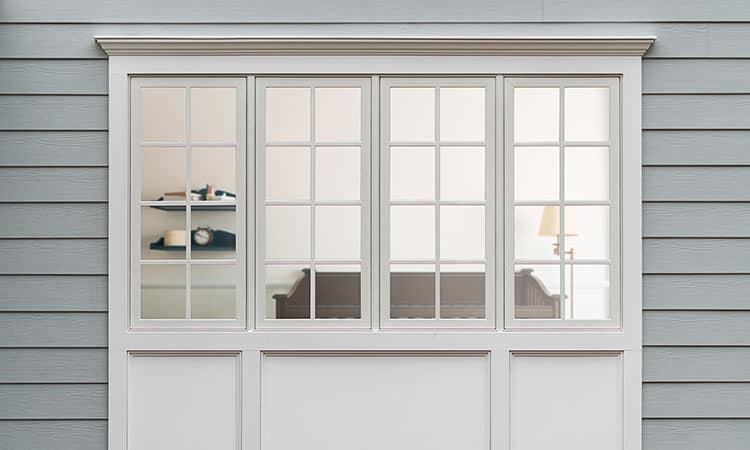Spring is the ideal time of year to consider replacing the windows in your home. Many older homes were constructed with wooden windows. Over time, wooden window frames start to show the effects of weather extremes and years worth of contraction during the colder winter months and expansion because of heat and humidity. Replacement windows will transform the look of your home from inside and outside. They will also increase the comfort level and energy efficiency inside. Every homeowner will welcome lower utility bills, especially during an unexpected summer heat wave.
Vinyl and fiberglass are two of the top materials that window manufacturers use for constructing replacement window frames. To help you choose the best option for your home’s architectural style, the appearance you want, and the budget you have, we’re comparing these two types of replacement windows. You’ll have a better understanding of what you’re getting for your money when you contact us about the purchase and installation of new windows.
What are the Most Important Things to Consider Before Buying Replacement Windows?
There are certain characteristics to look for in any replacement window. These are the critical factors to consider when you’re weighing the merits of fiberglass and vinyl.
#1. Energy Efficiency
#2. Aesthetic Appearance
#3. Weather Resistance and Durability
#4. Maintenance
#5. Consider the Cost
What are the Advantages and Disadvantages of Vinyl Windows?
Vinyl windows have been around since the 1970s. They were one of the first alternatives to wooden window frames. With vinyl frames, you have a large color and texture choice from which to choose. They are also appealing because we have the ability to customize the size and shape of the frames and window panes. Vinyl frames come in many colors, but you can’t change the color of your window frames later because vinyl can’t be repainted.
Vinyl can handle a broad range of weather conditions. In the winter, the frame shrinks, and in the hot summer, the structure expands. There is more seasonal contracting and expanding with vinyl than there is with wood.
Vinyl windows are made from a thermoplastic resin – or PVC. Thermoplastic is far more prone to overheating. Over time, the vinyl will weaken from a combination of contraction and expansion, and the buildup of heat in the space between the windows, the blinds, drapes, or curtains.
Another disadvantage to vinyl windows is the fact that they can’t be repaired, so if the glass inside the frame breaks, you have to replace the window and the frame. Ultimately, there’s a good chance that vinyl windows could turn into a costlier investment than fiberglass windows in the long run.
What are the Advantages and Disadvantages of Fiberglass Windows?
Fiberglass is a long-lasting weatherproof window frame material that requires minimal maintenance. Fiberglass is extremely adaptable to all weather extremes, and its heat and sun tolerance make it five times more resistant to degradation from UV exposure than vinyl window frames.
Fiberglass is made out of a thermoset resin which is a combination of liquefied glass fibers and resin. These materials produce a framing material that has superior structural reliability.
Although fiberglass window frames are narrow, they don’t lose any of their strength. Despite the thinner frame structure, fiberglass is eight times as strong as vinyl. A slimmer frame lets more light in and expands the outdoor viewing area.
Unlike vinyl, fiberglass can be repainted, so if you decide to repaint your house in a few years, you can repaint the fiberglass window frames, so they match any trim around the house.
Most people don’t know that fiberglass is a very eco-friendly product. Factories that manufacture fiberglass window frames use far less energy to make them than plants that make vinyl windows do. Recycled glass is used to make the glass fibers. In comparison, vinyl frames contain a minuscule percentage of recycled material,
When you consider the advantages that fiberglass windows offer, the combination of increased energy efficiency, structural integrity, overall durability, tolerance for all weather conditions and longer lifespan, despite the higher price tag, they may turn out to be a better long-term investment.
To learn more about our all of our fiberglass and vinyl window styles and other options, contact us for a free window consultation.
